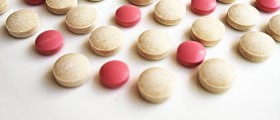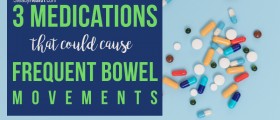
Antibiotics represent a group of medication that is highly effective against bacteria. There are many antibiotics and the doctor opts for the most suitable depending on the infective agent that has led to the infection. Even though these medications successfully kill pathological bacteria they may also cause imbalance regarding certain beneficial bacteria which are normally found in the digestive tract. This imbalance eventually leads to diarrhea and general reduction in intestinal immunity.
Probiotics are very beneficial live microorganisms. Normally, this beneficial effect is achieved only if probiotics are administered in adequate amounts and in particular cases. Majority of probiotics contain lactic acid, bacteria and bifidobacteria. These microorganisms can be obtained from food such as certain yoghurt and they are also available in a form of dietary supplements.
Since many antibiotics cause problems in the digestive system and reduce the amount of beneficial bacteria. d
Doctors most commonly prescribe antibiotics and probiotics simultaneously.
Prescription of Antibiotics and Probiotics
It is estimated that 1 out of 5 persons do not finish the full course of antibiotics due to side effects such as, diarrhea and other intestinal disturbances. This can easily be explained by the fact that many antibiotics actually kill both, the 'bad bacteria" responsible for the infection and "the good bacteria" which protect human gastrointestinal tract.
Even though probiotics are not always prescribed together with antibiotics they are considered a safe and "natural" way of maintaining proper bacterial flora in the intestine. By prescribing antibiotics together with probiotics the "good bacteria" are preserved and many side effects of antibiotics are avoided. This particularly refers to people who are on prolonged therapy with antibiotics or who are prescribed more than one antibiotic.
How to Take Antibiotics and Probiotics at the Same Time
There are certain measures when it comes to taking antibiotics and probiotics at the same time. The doctor who prescribes probiotics determines the dose of probiotics which is supposed to be taken on regular bases. Apart from probiotics he/ she may recommend a diet rich in food which represent natural source of probiotics. Furthermore, the doctor also decides for how long a patient is supposed to take antibiotics. The intake of probiotics in many cases lasts longer than the course of antibiotics.
It is essential not to take probiotics together with antibiotics. They are generally administered at least 3 hours before or after antibiotics. It is also advisable for patients never to take probiotics without prior consultation with a doctor. There are also potential side effects of antibiotics and they may not be given in certain cases (if patients are suffering from particular illnesses).

















Your thoughts on this
Loading...